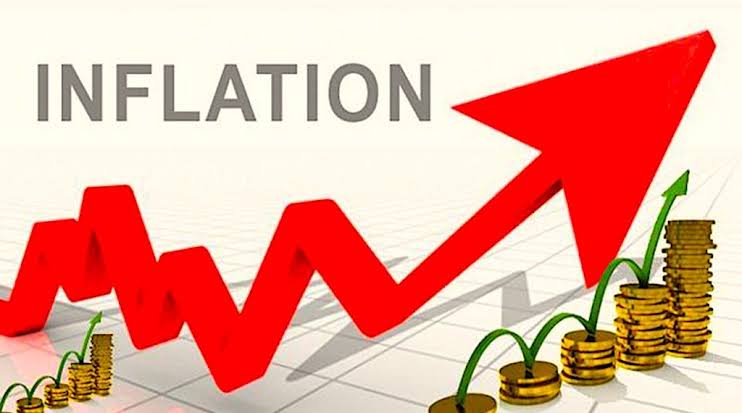Nigeria’s headline inflation slowed for the fifth consecutive month in August 2025, providing some respite for consumers grappling with high living costs.
Data released by the National Bureau of Statistics on Monday showed that inflation dropped to 20.12 per cent, down from 21.88 per cent in July.
The figure represents a 1.76 percentage point decline on a month-on-month basis and a sharp fall from the 32.15 per cent recorded in August 2024.
The Consumer Price Index, which tracks the average change in prices of goods and services, inched up to 126.8 points in August from 125.9 points in July.
Month-on-month inflation stood at 0.74 per cent, lower than 1.99 per cent in July, pointing to slower price increases across the country.
The report read, “The Consumer Price Index rose to 126.8 in August 2025, reflecting a 0.9-point increase from the preceding month (125.9).
“In August 2025, the Headline inflation rate eased to 20.12 per cent relative to the July 2025 headline inflation rate of 21.88 per cent.
“Looking at the movement, the August 2025 Headline inflation rate showed a decrease of 1.76 per cent compared to the July 2025 Headline inflation rate.”
The statistics office noted that inflationary pressures remain uneven. Urban inflation eased to 19.75 per cent year-on-year in August from 34.58 per cent a year earlier, while rural inflation was slightly higher at 20.28 per cent compared with 29.95 per cent in August 2024.
On a monthly basis, inflation in urban areas slowed to 0.49 per cent from 1.86 per cent in July, while rural inflation came in at 1.38 per cent, down from 2.30 per cent.
The figures underline the sharper impact of inflation in rural communities, where transportation, distribution, and supply chain challenges continue to drive higher price growth than in urban centres.
Food inflation, which remains the strongest driver of Nigeria’s inflation basket, also moderated in August but stayed elevated.
The index declined to 21.87 per cent year-on-year from 37.52 per cent in August 2024. On a month-on-month basis, food inflation slowed to 1.65 per cent, compared with 3.12 per cent in July.
The moderation was linked to falling prices of staples including rice, guinea corn flour, maize flour, millet, semolina, and soya milk.
The twelve-month average for food inflation stood at 25.75 per cent, lower than the 36.99 per cent recorded a year earlier.
Despite the improvement, food prices remain high, especially in the northern states where insecurity and logistics bottlenecks have continued to disrupt supply chains.
Core inflation, which excludes volatile agricultural products and energy, was recorded at 20.33 per cent year-on-year in August, down from 27.58 per cent in August 2024.
However, the index rose on a monthly basis to 1.43 per cent from 0.97 per cent in July, reflecting pressures from categories such as housing, water, electricity, gas, transportation, education, and healthcare.
The movement suggests that while headline inflation is easing, non-food inflationary pressures remain persistent, raising concerns for policymakers and monetary authorities who monitor core inflation closely as an indicator of structural pressures.
Across the states, inflation trends remained mixed. Ekiti posted the highest year-on-year headline inflation at 28.17 per cent, followed by Kano at 27.27 per cent and Oyo at 26.58 per cent, while Zamfara at 11.82 per cent, Anambra at 14.16 per cent, and Enugu at 14.20 per cent recorded the lowest.
Food inflation was highest in Borno at 36.67 per cent, Kano at 30.44 per cent, and Akwa Ibom at 29.85 per cent, while Zamfara at 3.30 per cent, Yobe at 3.60 per cent, and Sokoto at 6.34 per cent recorded the lowest.
On a monthly basis, inflation rose fastest in Yobe at 9.20 per cent, Katsina at 8.59 per cent, and Sokoto at 6.57 per cent, while Enugu at –5.32 per cent, Taraba at –3.64 per cent, and Nasarawa at –3.56 per cent saw declines.
The announcement of the inflation slowdown comes just days before the Central Bank of Nigeria’s Monetary Policy Committee meeting scheduled for September 22 and 23, 2025.
The committee is expected to deliberate on whether to maintain or adjust the current 27.5 per cent benchmark interest rate.
While five straight months of disinflation could give the bank some policy flexibility, the persistence of food and core inflation suggests that the MPC may remain cautious in its decisions.
WARNING: If You Are Not 18+, Don’t Click The Link Below 👇🫣
https://facultativethus.com/kx6iepv2qm?key=6c14bd1d68e1eba721851f19778f5efe
Please don’t forget to “Allow the notification” so you will be the first to get our gist when we publish it.
Drop your comment in the section below, and don’t forget to share the post.
Never Miss A Single News Or Gist, Kindly Join Us On WhatsApp Channel:
https://whatsapp.com/channel/0029Vad8g81Eawdsio6INn3B
Telegram Channel:
https://t.me/gistsmateNG





